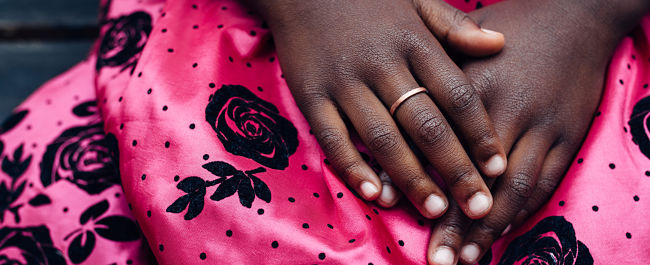Improving responses to violence against refugee and asylum-seeking women

Sexual violence against refugee and asylum-seeking (RAS) women is occurring across Europe and the Mediterranean countries. International agencies and institutions including the UN, UNHCR, Council of Europe, and European Parliament have highlighted the urgent need for action to be taken.
Bristol research found that this group of women are particularly vulnerable, with specific needs, and that overall services and professionals have been inadequately equipped to understand them or to support them in finding safety. For example, their immigration status affects their vulnerability to honour-based violence, forced marriage and domestic abuse, which in turn affects police responses, while cultural and structural barriers affect their access to support and justice.
Two further Bristol research projects also found gaps in understanding and responses to RAS women experiencing sexual gender-based violence. Research for HM Inspectorate of Constabulary demonstrated that RAS women found police response to be poor, and lacked the understanding and skills to support women from different cultures and languages. And the ESRC-funded Justice, Inequality and Gender-Based Violence project found that refugee and immigrant women who were victims of violence experience the least justice, with immigration status often acting to prevent good criminal justice outcomes.
Beyond the University, NGO research also identified a major gap in responses to RAS women. The Refugee Council, for example, highlighted the lack of informed government responses to RAS women who disclose sexual violence: they successfully called for a referral mechanism and better training of immigration officers and other public officials to deal with the issue.
In 2017 the Rights, Equality and Citizenship (REC) Programme of the European Union funded the research programme Addressing sexual violence against refugee women (ASVARW). This included initiatives at community level aimed at raising awareness among professionals, agencies and NGOs who are active in dealing with violence or with migrant, refugees and asylum seekers, but not directly engaged in working with RAS women.
As the UK partner in the programme, Bristol's Centre for Gender and Violence Research led a multi-disciplinary approach to design and deliver training to UK professionals in direct contact with RAS women. The team piloted and finalised an expert training package comprising: legal and institutional issues around migration and asylum to the UK; social, cultural and anthropological issues; how to manage individual conversations with RAS women; and signposting victims to services and building local referral pathways. By 2018 they had delivered the training course four times to over 50 practitioners from across the UK, covering a range of sectors including domestic and sexual violence services, refugee and asylum support services, health, housing, social workers, counsellors and therapists, and legal counsellors.
Oversubscription for all the centre's ASVARW courses provided evidence of a real and widespread appetite for the training amongst practitioners and training organisations across all related areas. Interviews with key professionals had also established that was little to no existing similar training available in the UK, largely due to a lack of available funding in the refugee/asylum sector: many of the organisations who might have previously offered training and support have been forced to close. (UN training has an international focus and is aimed at an audience of international humanitarian workers rather than tailored for the UK context).
In 2018 the team successfully applied for funding from Bristol's ESRC Impact Acceleration Account (IAA) to produce the training as a modular approach, scale-up delivery significantly across a range of disciplines and geographical areas, and to make it sustainable beyond Bristol's involvement. This was achieved by developing the best model through which to licence and quality-control the training so that existing (mainly third sector) training organisations across the country could deliver it on an on-going basis, embedding the delivery in their ongoing training offers.
By the mid-2019 the team had a license agreement in hand for four partners agencies:
The partners use the training materials for their members and offer (paid) training for other practitioners.
Women's Aid described the collaboration as "An extremely rewarding experience to be able to give and share knowledge, skills and resources with partners to achieve the objectives for the development of the training. We have all been able to add to our knowledge base…".